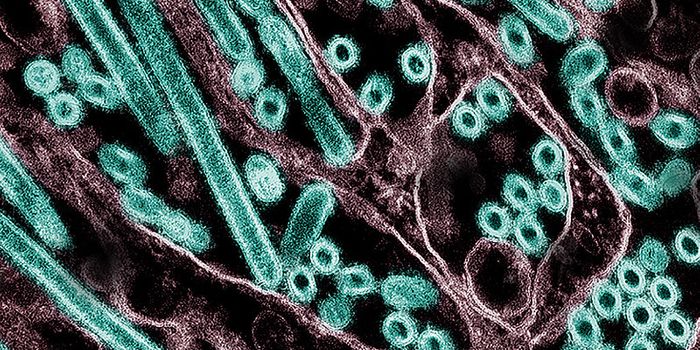As Ebola Outbreak Continues, Researchers Create Faster Genetic Test
Since 2013, around 30,000 people have been infected during several outbreaks of Ebola in eight different countries. One of those outbreaks has been going on in the Democratic Republic of Congo (DRC) since 2018, and has been called a public health emergency of international concern by the World Health Organization (WHO). According to the latest information provided by WHO, there were eighteen confirmed cases between January 15 and February 4, 2020. While cases are declining in this outbreak, the organization cautioned that these improvements are in a fragile state, and vigilance must remain high.
Like many viruses, there are different strains of ebolaviruses that can only be distinguished using genetic tests. The various strains can be characterized in different ways based on this genetic data, making dealing with outbreaks and identifying their origins challenging.
"At the moment, it often takes months to develop the right tools to fully characterize the genetic material of the ebolavirus causing an outbreak" explained Professor Jan Felix Drexler, a scientist at the German Center for Infection Research (DZIF) and Charité - Universitätsmedizin Berlin. "However, this knowledge is crucial for developing specific diagnostic tests, identifying transmission chains and eventually controlling the outbreak."
Drexler's team has now created a test that can speed up the process of elucidating the genetic identity of ebolaviruses. Their test employs a very common and well-used molecular technique called polymerase chain reaction (PCR), which can create many copies of a piece of genetic material that can then be sequenced. This technique is also compatible with high-throughput methods and was tested and verified using four species of ebolavirus.
"In cases in which different regions and countries are affected by outbreaks of this kind, in particular, it is necessary to establish whether the case in question relates to the spread of a previously known variant of the virus or a new outbreak," noted Drexler. The test can now determine that using only one assay.
"Both in the current outbreak in the Democratic Republic of the Congo and in future outbreaks, we may now be able to characterize the trigger more quickly and take appropriate effective measures to end the outbreak," Drexler added.
The DRC is also battling a serious outbreak of measles, which has killed far more people than Ebola. Vaccine rates are low, communities lack access to reliable healthcare, and violence has surged in the country, making treating both of these disease outbreaks especially difficult. WHO is trying to help the country address these health care challenges.
Sources: AAAS/Eurekalert! via Charité - Universitätsmedizin Berlin, Eurosurveillance








